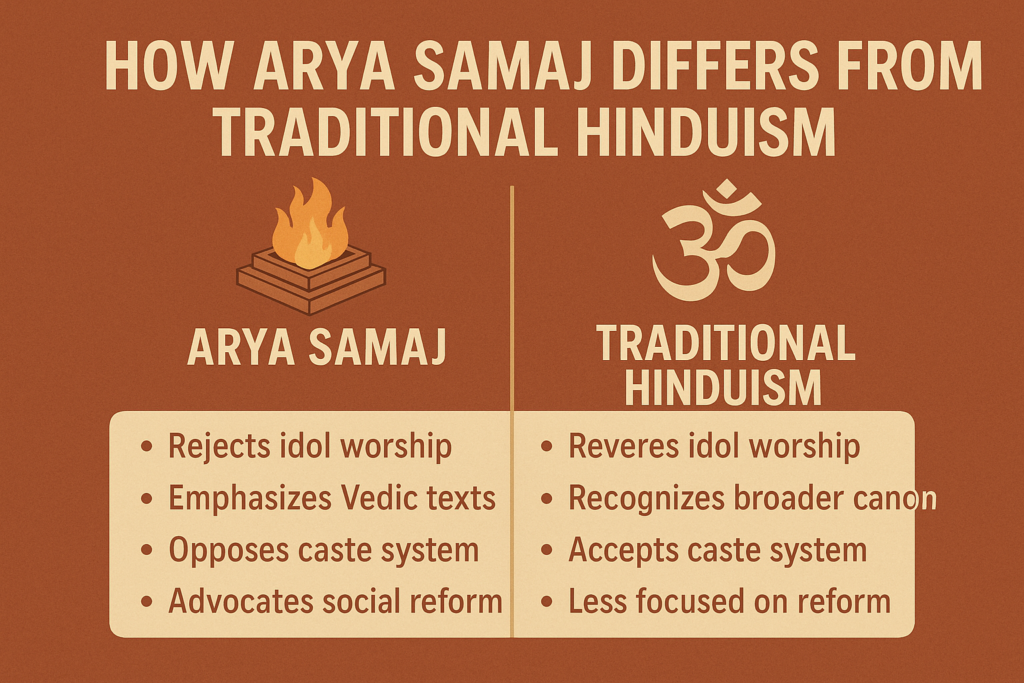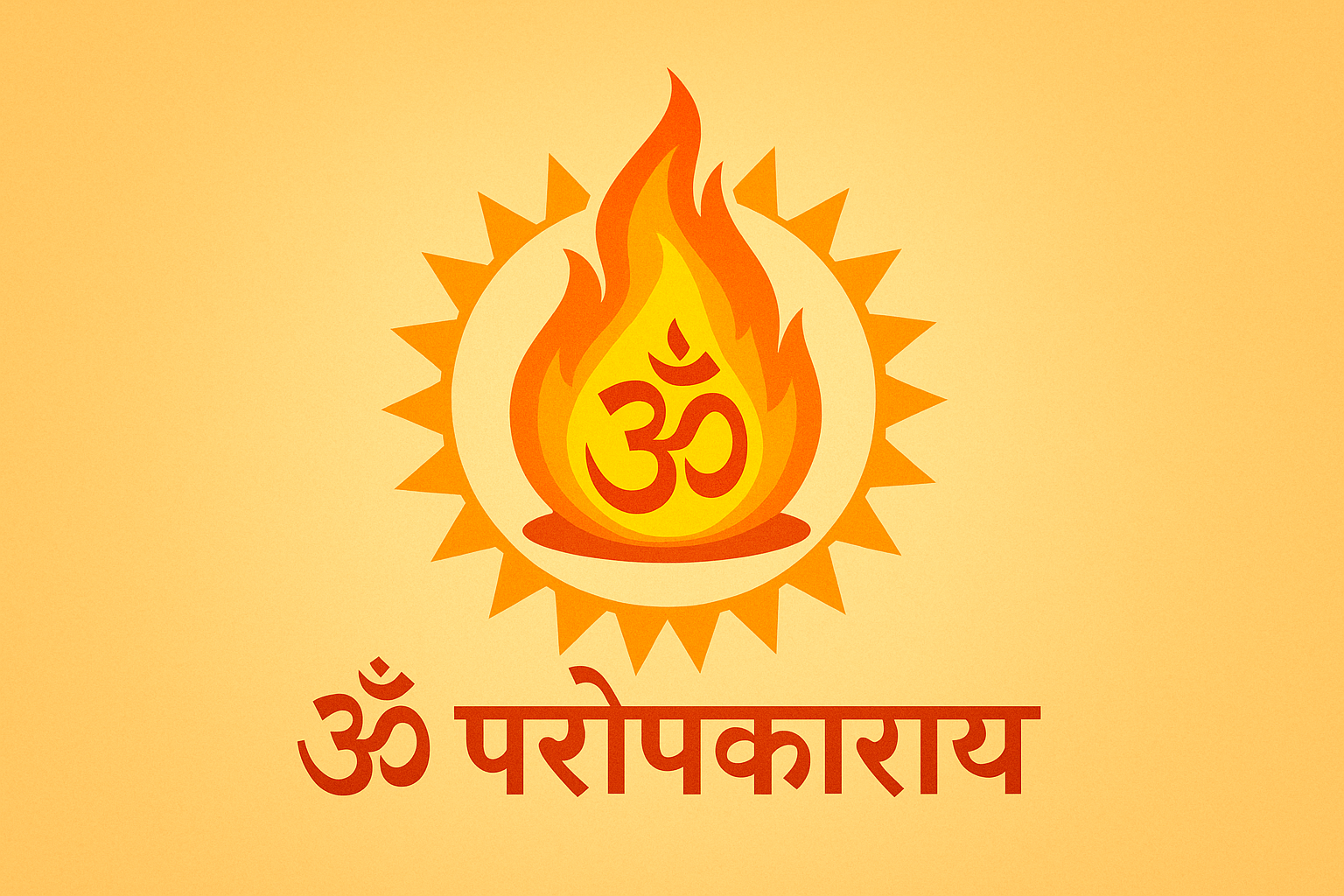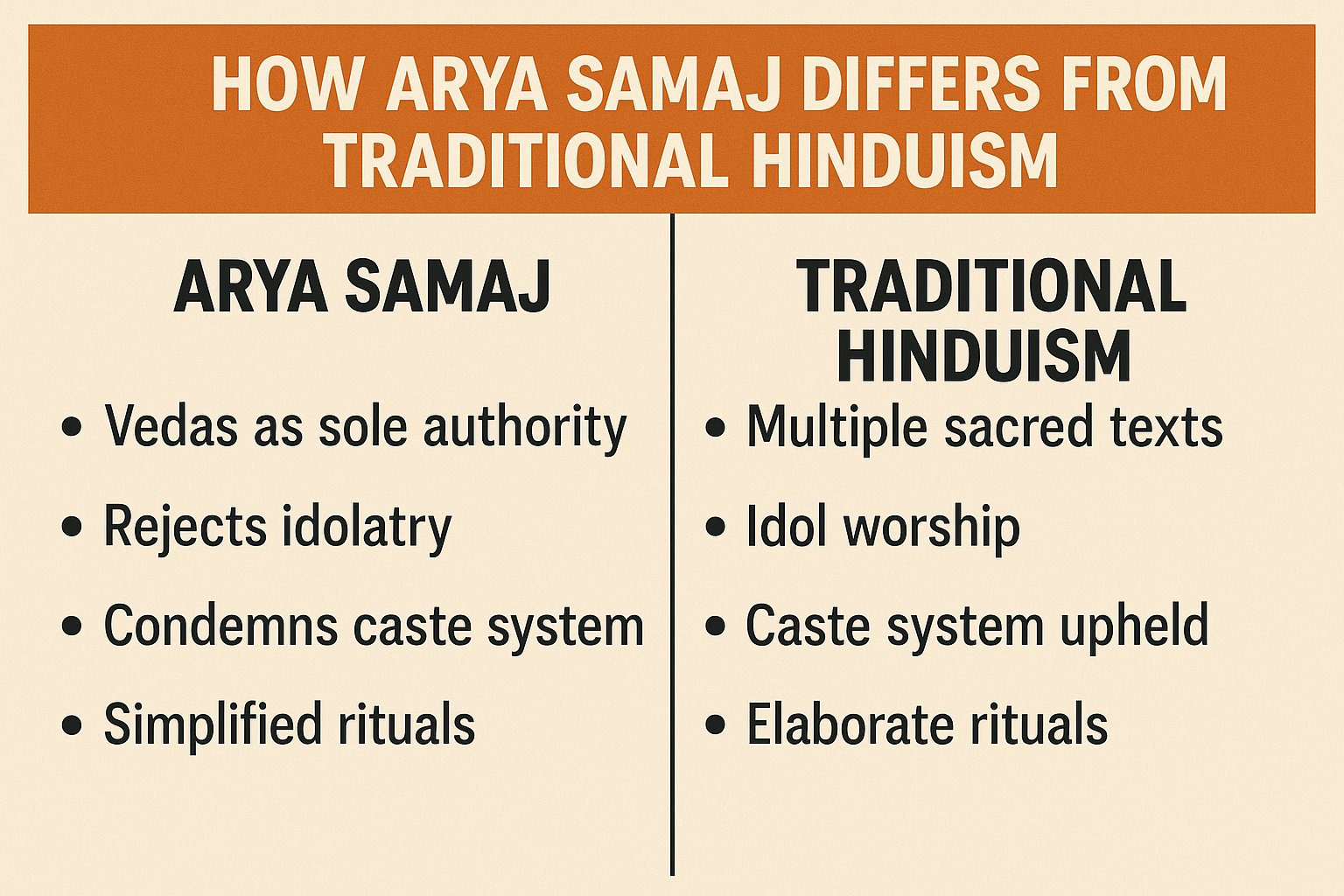Understanding Arya Samaj and Traditional Hinduism
Religion is a vast, intricate tapestry with numerous threads, each representing distinct interpretations, beliefs, and practices. Hinduism, one of the world’s oldest religions, is no exception. It’s a rich amalgamation of varied philosophies, traditions, and sects. Among these, Arya Samaj and Traditional Hinduism represent two significant strands. They are distinct yet intertwined, sharing common roots but diverging in beliefs and practices.

A Glimpse into Arya Samaj
Arya Samaj, founded by Swami Dayanand Saraswati in 1875, is a reformist movement within Hinduism. It diverges from traditional Hinduism in several ways, emphasizing rational thinking, equality, and social reform. Arya Samaj plays a vital role in shaping contemporary Hinduism, challenging age-old customs and infusing fresh perspectives.
The Diverging Paths of Arya Samaj and Traditional Hinduism
While Arya Samaj and Traditional Hinduism have common origins, they differ significantly in their beliefs and practices. Here’s a closer look at their unique characteristics.
The Vedas: An Integral Part of Both
Both Arya Samaj and Traditional Hinduism revere the Vedas, the ancient scriptures of Hinduism. However, their interpretations differ. Traditional Hinduism views the Vedas as divine revelations, encompassing rituals, hymns, and philosophical discussions. On the other hand, Arya Samaj advocates for a rational and symbolic interpretation of the Vedas, emphasizing ethical and moral principles over ritualistic practices.
Idol Worship: A Point of Divergence
Idol worship, a fundamental aspect of Traditional Hinduism, is notably absent in Arya Samaj. Traditional Hindus consider idols as symbolic representations of gods, facilitating focus and devotion. Arya Samaj, however, perceives idol worship as misguided, encouraging direct communion with the divine through meditation and moral conduct.
Belief in Karma and Reincarnation
Both belief systems subscribe to the concepts of Karma (the law of cause and effect) and reincarnation (the cycle of birth and death). However, Arya Samaj emphasizes the ethical implications of Karma, promoting righteous conduct for spiritual progress, while Traditional Hinduism often links Karma with ritualistic practices and caste duties.
The Role of Pandits
In both traditions, pandits play a crucial role. They guide individuals through various rituals and ceremonies. One such humble servant of the Arya Samaj is Pandit Brahmdev Vedalankar Ji. Serving in Noida, Ghaziabad, and Greater Noida West, he has dedicated his life to the principles of Arya Samaj, helping individuals navigate their spiritual journeys with wisdom and compassion.
Embracing Change: Social Reforms in Arya Samaj
Arya Samaj has been at the forefront of social reforms, challenging caste discrimination, promoting female education, and advocating for widow remarriage. It strives to align spirituality with social justice, making it a dynamic, evolving facet of Hinduism.
Final Thoughts
While Arya Samaj and Traditional Hinduism differ in various ways, they represent the diverse expressions of spirituality within the broader framework of Hinduism. Both contribute to the rich tapestry of this ancient religion, offering unique paths towards spiritual realization.
Whether you lean towards the ritualistic traditions of Hinduism or the reformist approach of Arya Samaj, it’s the pursuit of truth, righteousness, and self-realization that ultimately matters. As Pandit Brahmdev Vedalankar Ji often reminds us, “The paths may be different, but the destination is the same.”
If you’re interested in learning more about Arya Samaj and its principles, do explore our page on Arya Samaj Principles. And for those seeking guidance on religious ceremonies, our services page provides detailed information on the ceremonies conducted by Pandit Brahmdev Vedalankar Ji.
Pandit Brahm Dev Vedalankar Ji is a revered Arya Samaj scholar known for his deep Vedic knowledge and dedication to promoting the teachings of Maharishi Dayanand Saraswati. His profound wisdom, inspiring discourses, and commitment to truth and equality have made him a guiding light for many, fostering spiritual growth and social harmony.


